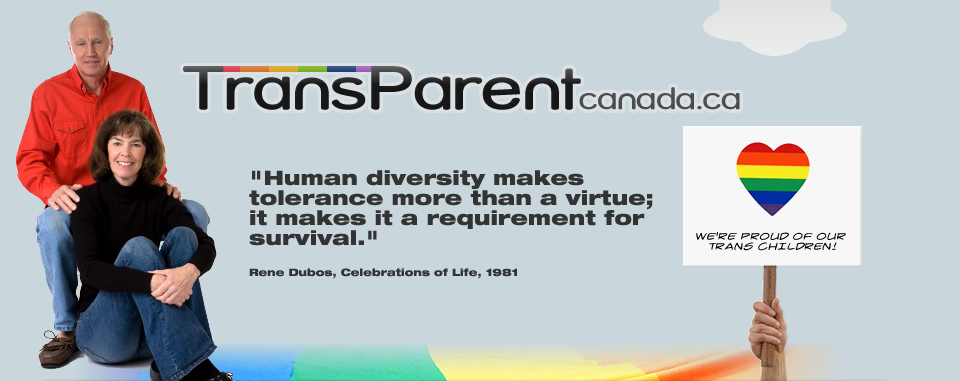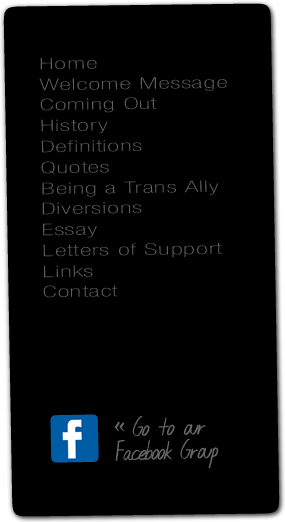
Being a Trans Ally
(written by a young trans man)
- Don’t ever “out” trans people. This is dangerous to safety and invalidates their identity.
- Don’t ask trans people what their “real” name is (i.e. the one they were born with). If you do know the birth name of a trans person, don’t tell it. If a trans person wants people to know, he or she is the one who should disclose it.
- Don’t ask trans people to educate you. Do your own homework and research. It is not trans people’s duties to spend their time and energy on you so you “get it.”
- Recognize your privilege and prejudices as normatively gendered individual.
- Don’t use prefixes like bio- or real-; instead use trans and non-trans. Also use “male/female assigned at birth” rather than “born as a girl/boy.”
- Don’t tokenize. Adding a T to LGB does not make you progressive, cool or an ally. Make sure you have the resources, knowledge and understanding to deserve that T. Make sure you are prepared to engage in the fight for trans rights and visibility. Make sure you have educated yourself. Make sure you are prepared to be a good ally and offer more than mere lip service.
- Don’t confuse gender with sexual preference. Trans people are straight, gay, bi, pansexual, asexual, etc. Gender is not tied to sexual preference, and like any non-trans person, there are a million ways to express desire.
- Don’t ask trans people about their bodies, how they have sex, if they have a penis/vagina, etc. It’s rude and it’s none of your business.
- Don’t ask about surgery or hormone status. Don’t ask trans people: “When are you going to have THE surgery” or “Are you on hormones?” or anything surrounding their bodies, the medical establishment or private details regarding their lives.
- Don’t assume that the only way to transition is through hormones/surgery, and don’t assume that all trans people want hormones/surgery.
- Recognize that trans women deal with sexism in a very real way, on top of transphobia.
- Don’t assume all trans people identify as “men” or “women.” Many trans people and genderqueer people identify as both, as neither, or as something all together different.
- Recognize that not all trans people or genderqueer folk are out there trying to smash the binary. Recognize that it is not their responsibility or something they even support. If you want to smash the binary, then you do it!
- Don’t assume trans people feel “trapped in the wrong body.” This is an over-simplification and not the way (all) trans people feel.
- Do listen if a trans person chooses to talk to you about his or her transhood. Don’t tell that person about chromosomes, a class you took in school, etc. It is the trans person's life, and it is not your place to put theory, judgments, beliefs, etc. on him or her.
- Think about what makes you feel uncomfortable and why.
- Recognize the diversity of trans and genderqueer lives, and that these identities are part of other identities that often intersect with race, class, sexual preference, etc.
- Don’t let transphobia slide. Transphobia comes in countless guises and as a non-trans ally it is your duty to confront it. Trans issues are rarely if ever discussed and when they are it is more often than not in a negative light. Transphobia is equally as oppressive as sexism, homophobia, heterosexism, racism, and so on.
- Talk about trans issues/rights. Engage people in discussions and share your knowledge. The majority of the “information” people have surrounding trans people are stereotypes and assumptions. To most people, trans folks are the freaks from Jerry Springer.
- Don’t just mourn or take action when trans people are murdered. Celebrate trans lives and work at making trans and genderqueer individuals more visible on a day-to-day basis.
- Above all, RESPECT and SUPPORT trans people in their lives and choices without treating them like novelties or celebrities.
